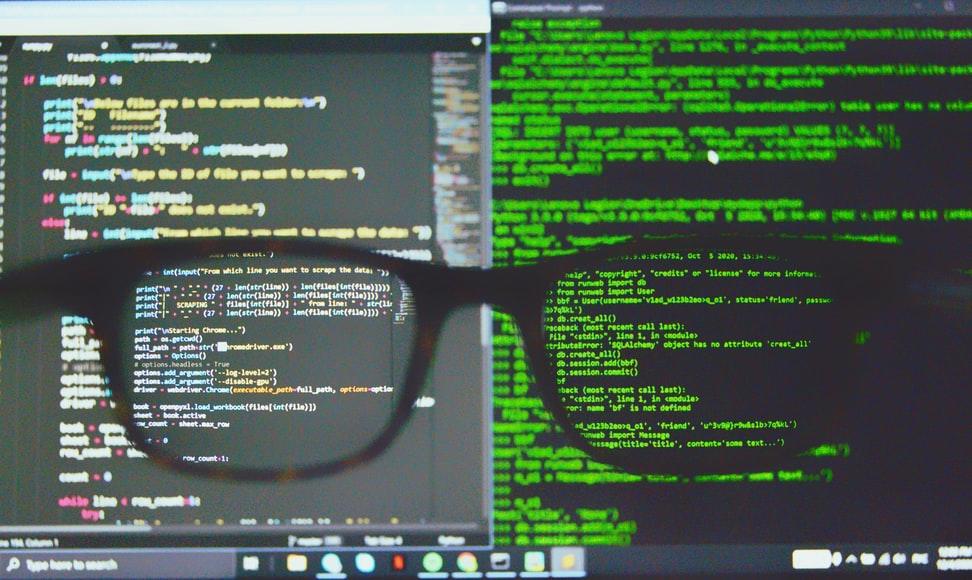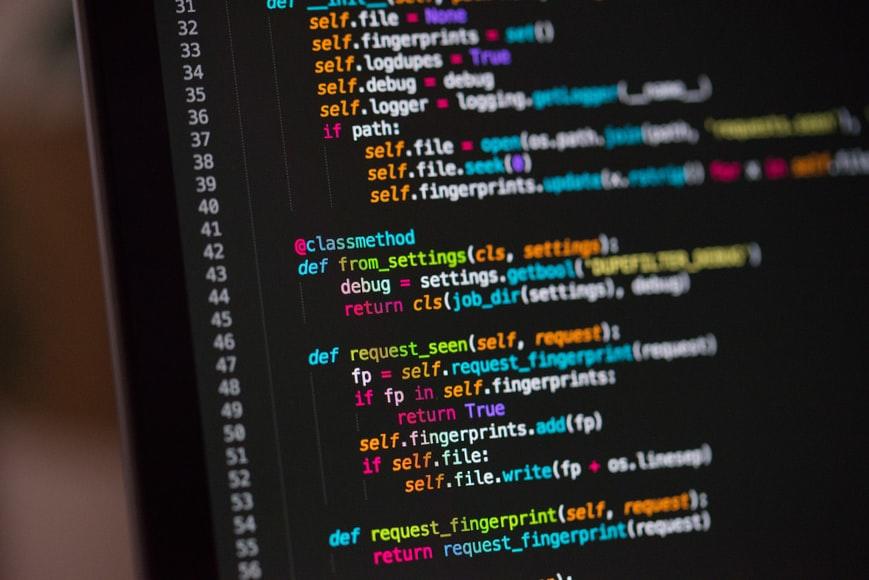So far, programming languages have served as the foundation of human endeavors; they are a crucial coding component. Without these languages, no technological advancement would be possible.
Scripting languages function as a spotlight and a vital tool for all computer programming.
This technologically advanced world has bestowed numerous computer languages upon developers, each with its own set of goals, functions, strengths, and limits.
Nevertheless, this blessing can become problematic when a newbie programmer has to select their initial computer language to study, especially if they do it solely for higher future earnings.
Furthermore, the process becomes even more complicated when the goal is to discover a credible resource to study a programming language in the United States.
Have you ever thought about becoming a computer programmer but wondered, "how to learn Python?"
Well, this guide will explain everything you need to know about the Python language, including what Python is, the benefits of learning it, how long it takes to learn Python, and what jobs you can get after becoming an expert in Python language.
Therefore, keep reading to learn more about Python for beginners.


What Is Python Language?
So, what is Python language? Python is a dynamically semantic, translated, high-level computer programming language.
Its elevated and house-built structure, together with dynamic binding and typing, makes it ideal for Faster Development and a programming or bridge language for connecting elements.
Python's concise, straightforward syntax prioritizes readability, lowering software maintenance costs.
The packages and modules are supported by Python, which fosters code reuse and program modularity.
The Python code and its substantial library are available for free download and distributed in code or binary form for all major channels.
Why learn Python? Python is popular among developers due to the enhanced productivity it offers. The formatting cycle is extraordinarily rapid since there is no compiling phase.
Furthermore, Python scripts are simple to troubleshoot. For instance, a bug or improper data will never result in a segmentation issue. Instead, when the interpreter finds a mistake, it throws an exception.
The translator produces a code snippet if the application fails to catch the error. This is where a source-level debugger comes in; it can help with:
- Examination of global and regional variables
- Execution of random expressions
- Setting breakpoints
- Walking through the code one line at the moment
This debugger is developed in Python, demonstrating its inquisitive capabilities.
What Are The Uses Of Python?
Despite its humble beginnings as a side project named after Monty Python, Python has become one of the world's more popular and frequently used computer languages.
Hence, it is used for data science, machine learning, and even designing and software and web development.
Keep reading as we look at what Python is used for and why it's a popular and adaptable computer programming language.
Try to learn python online on Superprof.

Data Analytics
So, what does Python do? Like AI and machine learning, data analytics is a fast-growing discipline that uses Python.
As a result, there is a demand for individuals who can gather, manage, and analyze data blocks when producing more data than ever before.
Python makes sense for data science and analytics. The language is simple to learn, versatile, and exceptionally well-supported, making it quick and straightforward to use for data analysis.
It's handy for altering enormous volumes of data and doing repetitive operations.
Machine Learning and Artificial Intelligence
Python is ideal for artificial intelligence (AI) and machine learning (ML) applications since it is a powerful, versatile, and easy programming language.
Python is one of the most popular programming languages amongst data scientists. And there are numerous Python AI and machine learning tools to make your life easier as a software and web developer.
Data Imaging
Another prominent and growing area of focus is data visualization or data imaging. Python offers a range of graphing libraries with a variety of functionality, in addition to its versatility and open-source status.
Whether you want to make an essential graphical representation or a more dynamic plot, you can choose any library type to meet our needs.
Game Development
Python has its applications in the game development business, despite it being far from becoming an industry norm.
The computer language may be used to construct basic games, making it a valuable tool for rapidly creating prototypes. In Python, specific methods (such as creating conversation trees) are also feasible.
Therefore, even if you're a novice to Python or game creation, it lets you construct a message-based game in Python.
As a result, you may practice a range of talents and broaden your potential skillset.
Language Development
Python's clean and straightforward architecture has inspired the development of other computer languages. Hence, the syntax of Python is comparable to those of:
- Go
- CoffeeScript
- Cobra
This makes Python is an excellent foundational language. If you're unfamiliar with programming or have just started learning, learning Python will make it easier for you to expand into other fields as well.
Web Development
Python is a fantastic programming language for web development. This is primarily due to the several Python web development frameworks available, including Pyramid, Flask, and Django. In addition, services and sites like Mozilla, Spotify, and Reddit have all used these technologies.
Thanks to the rich modules and libraries that come with Python systems, data authorization, content management, and database access are all seamless.
So it is unsurprising that Python is so prevalent in web development.
Find python for beginners on Superprof.

Finance
Python is becoming more widely used in finance, particularly when analyzing qualitative and quantitative data fields.
Resultantly, it can be quite useful for:
- Predicting asset values and patterns
- Automating procedures across several data sources
- Evaluating financial market trends and projections
Python, as previously said, is an excellent tool for dealing with large data sets, and there are several modules available to assist with data compilation and processing.
As a result, it is one of the most widely used languages in the financial sector.
Design
For most of those wondering, "What is Python used for?" design may have been the last thing you expected to see on the list.
However, Python may be used to create visual design apps. Interestingly, the language is supported by various 2D image applications, including Gimp and Paint Shop Pro.
Python is even utilized in 3D animation programs like Blender, Cinema 4D, and Lightwave, demonstrating the language's versatility.
Search Engine Optimization
Another unexpected Python application on our list is in the realm of search engine optimization (SEO). Again, it's a field that frequently advantages from automation, which Python makes possible.
For example, Python can implement modifications across numerous pages or classify keywords.
Moreover, Natural language processing (NLP) and other emerging technologies are likely beneficial to SEO professionals.
Python may be a valuable tool for learning NLP and understanding how people search and how search engines generate results.
Check here for python classes NYC on Superprof.

Why Is Python So Popular?
Python is the world's third most popular programming language, behind Java and C, as per the TIOBE index, which evaluates programming language prevalence.
Python's widespread use can be attributed to several factors. These include:
Easy To Use
Python is a fantastic initial language for people new to programming and coding. It's pretty simple to learn, so it's an excellent place to start for beginners.
Simple Syntax
Python's syntax is more like English, making it reasonably straightforward to read and grasp. In addition, because of its simple layout, you quickly determine what every code line does.
Growing Community
It has a burgeoning population. Anyone can program with Python because it is an accessible language.
Furthermore, a cooperative community supports and develops the ecosystem, contributing to its innovations and libraries.
Versatility
It is adaptable. Python has a wide range of applications, as we'll see. The language may be used in various fields, including data imaging, artificial intelligence, software development, and web development.
Search for python classes on Superprof.
How Long Does It Take To Become An Expert At Python?
As we've already established, Python is a straightforward programming language compared to many others. As a result, the fundamentals may be learned in as little as a few weeks.
Learning Python programming fundamentals, such as basic Python syntax, object-oriented programming, data types, variables, loops, and functions, can take anywhere from five to ten weeks on average.
Finally, the time taken to learn Python is determined by your prior expertise with web development, programming languages, data analytics, and other relevant subjects.
Here is a summary of how easy it may be to learn some specifics:
The Syntax
Python's syntax is pretty easy, and its fundamentals are reasonably straightforward, even though it's thick, with a myriad of modules to learn and decipher through.
However, the simple syntax facilitates learning and adds to a more natural and simplified coding experience.
This significantly reduces the mental burden as you work on more extensive and complicated assignments.
Adaptability
Python is also an extremely adaptable programming language. Hence, it is utilized by numerous huge businesses, including Facebook, NASA, Amazon, Facebook, and Reddit, in various projects.
And since big companies value their strength and adaptability, the language is projected to grow in popularity worldwide.
As a result, Python may be used in almost any industry.
Module System
Python's extensive module system dramatically simplifies the writing process by allowing you to copy and paste an operation from the library into your program.
Even better, because Python is open-source software, the number of resources and libraries available continuously increases.
As a result, users can find more adaptable libraries as Python grows in popularity, developing more scripts less quickly and simplifying current material.
Can You Learn Python On Your Own?
Yes, because of its simplicity, you can begin studying Python independently. The language is simple to install and execute from any location on your computer.
Furthermore, Python has a vast and active user base, making it easy to contact someone who can help if you run into issues.
Data science courses and coding boot camps are becoming increasingly popular options for people wanting to learn Python, and not just for newbie Python Developers – Python specialists, like those in other technical fields, must continue to know to keep up with changes in programming techniques, languages, and patterns in data science.
Python is also known for its extensive documentation, found at Python.org. In addition, several websites, such as codingbag.com and practicepython.org, allow you to practice Python and keep up to date.
You may also keep informed by donating to an accessible platform like Bootstrap or GitHub.
Several resources are available to determine whether a given program or module with specific functions is available in Python.
For instance, a Python Language Index is available on the Python website. There is also a searchable page for a variety of Python-related resources.
Learn Python With An Expert
Employers all across the world value Python-related skills in many industries. You can quickly learn Python without prior programming experience due to its intuitive, easy-to-learn nature.
However, if you know Python on your own, it can take you about a year or more to master every single aspect of the language.
Taking classes in a group can make you miss specific topics challenging to understand. In such cases, hiring Python tutors is one of the best options.
If you want to become an expert at Python, Superprof has millions of tutors who can give you personalized lessons according to your skillset.
Whether you just started learning to program or are n intermediate seeking to advance your programming skillset, you can easily find tutors at Superprof.
They give personalized lessons that are tailored to your learning capabilities. If you don't want to take physical addresses, Superprof also offers online classes where you can quickly attend a course within the convenience of your homes.
The best thing about Superprof is that the first lesson is always free, so it's up to you whether you want to continue with the same tutor or switch to another one.
Summarize with AI:















